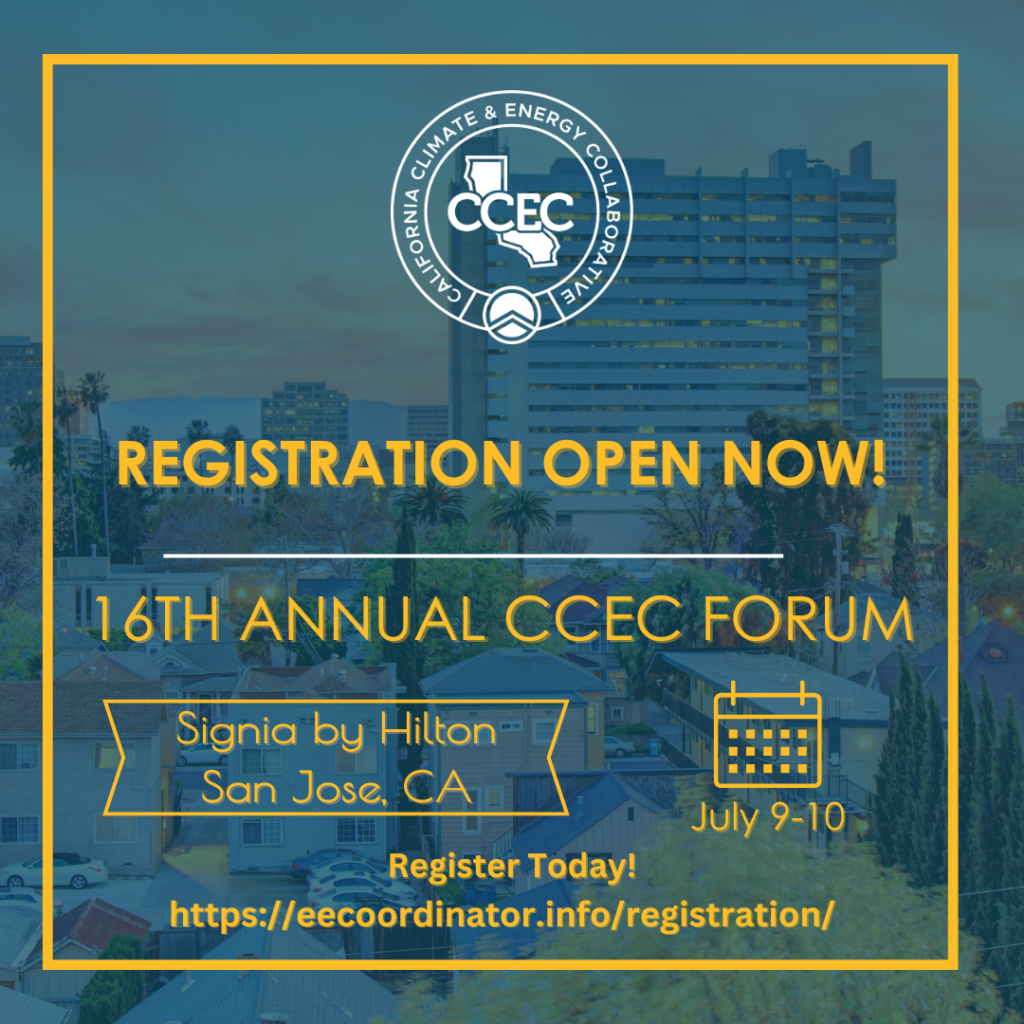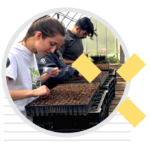May 29, 2025
Topic
Supporting Civic Leadership
by Bernadette Austin
This is an important juncture in the year for many folks. It is graduation season, and Memorial Day marks the beginning of summer. It is also a pivotal time in California’s two-year legislative cycle, as well as a critical moment for both the state and federal budgets. At CivicWell, we are halfway between our annual Policymakers Conference, (which convenes local elected officials such as mayors, city council members, and county supervisors), and our annual Forum for the California Climate and Energy Collaborative, (which convenes practitioners, including government agency staff, elected officials, and community organizations).
At this important moment professionally, politically, and economically, we convened civic leaders by their respective geographic regions to discuss what inspires them and learn about what they are working on in their communities. Here are some of the emergent themes from these discussions:
- Fire recovery: Wildfire impacts have been top of mind for local leaders from across the state. Elected officials who participated in our conference in March noted that they connected with other leaders grappling with similar challenges and shared information and strategies to better support their constituents. Many mentioned how important CivicWell’s panels and webinars on Creating Climate Resilience Districts and Climate Resilience and Recovery have been in guiding their response.
- Flexible funding: Regardless of which region they were from, many leaders have had to address funding challenges with creative solutions. These include breaking funding requests into smaller amounts over a shorter period of time; planning out for one year instead of three or more years; and diversifying funding opportunities by looking to cross-sector partnerships or local and state funding solutions.
- Wealth inequality: Many communities are struggling with the ramifications of wealth inequality. These include the increasing cost of living, workforce development and economic development, and the wealth gap between rural and urban communities. Cost of living impacts key areas that local elected officials play a role in, such as housing availability and energy affordability. While California was recently named the fourth largest economy in the world, those economic benefits vary by industry and geography and impact communities and individual households unevenly. Some rural communities that are vacation destinations grapple with high housing costs for long-term residents, and other rural communities have large proportions of public land which do not contribute proportionally to the local tax base. Local leaders discussed these dynamics and presented ideas for addressing these at a regional level.
- Navigating change: The present moment calls for leaders to be dynamic and responsive in the face of changing policies and funding at the federal level. Local leaders have utilized CivicWell convenings to share information with each other about options for responding to periods of uncertainty and successful strategies for planning for the future.
- Civic engagement: During a time when public trust in government is diminishing, the local leaders who have attended CivicWell convenings have embraced the challenge to improve trust and engagement. Participants have shared a number of ways to increase constituent confidence, including embracing technology, improving bidirectional communication, and delivering on commitments.
Since our inception, CivicWell has worked to support civic leaders transform local vision into action. Indeed, this concept has evolved into our tagline. We are proud to collaborate with local leaders to mobilize them towards our shared commitment to cultivating sustainable and resilient communities.
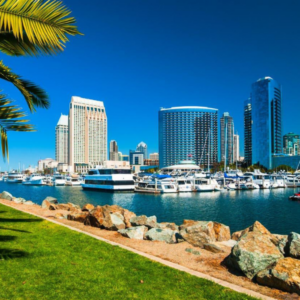

Catalyst Convenings
Setting the Stage for Ongoing State-Local Coordination within Regions
CivicWell has built on our legacy of convening collaboratives and collaborating with state agencies through an innovative series of convenings. Earlier this year, the Governor’s Office of Land Use and Climate Innovation (LCI) and the Strategic Growth Council (SGC) hosted two Catalyst Convenings with planning assistance and support by UC Berkeley’s PossibilityLab and the California Climate & Energy Collaborative (CCEC)—a CivicWell initiative that fosters knowledge exchange and collaboration amongst local climate and energy practitioners to advance fair and equitable climate change and energy practices.
Through this effort, CivicWell, LCI, and SGC have built on a successful track record of coordinating on many activities, including the facilitation of the State and Local Climate and Energy Coordination (SLECC) initiative, which CCEC began developing in 2022 to build a better bridge of communication and ideation to accelerate progress on place-based energy, climate, and land use priorities. In 2024, facilitators decided that bringing the SLECC model to in-person regional convenings would be of value to both state and local organizations. It held its first regional convening called the Regional Energy and Climate Hub Inland Empire, or “REACH IE” in Morongo on December 5, 2024.
Recently, LCI had begun working to organize a series of Local Government Roundtables in six regions across the state. Meanwhile, SGC was also organizing its annual Catalyst Conference to be held in February 2025 with the goal of hosting a series of regional convenings following the statewide conference. Once these parallel efforts became apparent, LCI and SGC opted to collaborate and co-produce a unified regional event series, thereby streamlining meaningful state-regional engagement for participants from local, tribal, academic, philanthropic, and other community-based organizations.
The San Diego Regional Convening took place on March 25th, 2025, and the Los Angeles Regional Convening was held on March 26th, 2025. Both convenings brought together stakeholders from each region to explore climate and energy challenges, align state and local priorities with state agency staff, and co-create actionable recommendations addressing the unique issues identified by them.
Over 300 people from more than 130 community-serving organizations across local, tribal, and state government, as well as nonprofit, community-based organizations (CBOs), philanthropic, and academic institutions, attended both convenings. Regional attendees were joined by representatives of 9 state agencies that shared engagement and assistance opportunities. Each convening had a similar agenda featuring introductions, a regional landscape overview, an activity highlighting regional needs and assets gleaned from registration data, and breakout sessions featuring topics specific to each region.
CCEC was an active planning partner in the development and execution of Catalyst Convenings in March 2025 in San Diego and Los Angeles, including sharing its successful REACH IE convening “playbook” assets, ranging from registration forms to planning documents and collateral. Information gathered from each convening will support CCEC’s ongoing REACH goal of a more streamlined and sustained coordination between key local and state stakeholders and a dynamic regional landscape analysis and other resources to support work in each region. Once established by a regional convening, CCEC can continue to support the hub’s underlying connective infrastructure with a long-term mission to leverage the collective power of state, federal, and regional capacity and resources to advance place-based energy, climate, and land use priorities. More information about REACH and how you can get involved can be found at our website.
The next Catalyst Convening will take place immediately before the 16th Annual CCEC Forum, taking place on July 8th at the Signia by Hilton in San Jose. More convenings are expected to be planned in California Climate Assessment regions throughout the state over the coming year. For more information about future convenings, please contact Rosheil Ramirez at rramirez@civicwell.org.
Safe Routes to School Assessment and Recommendations
In April, our Community Design team, along with a representative from Blue Zones, performed a Safe Routes to School Assessment for the Humboldt County Association of Governments and the City of Arcata, which also included the Fuente Nueva Charter School. We then made recommendations to them about what they could do to make the path to the school more protected for the children who attend. Below are some photos from the Assessment.
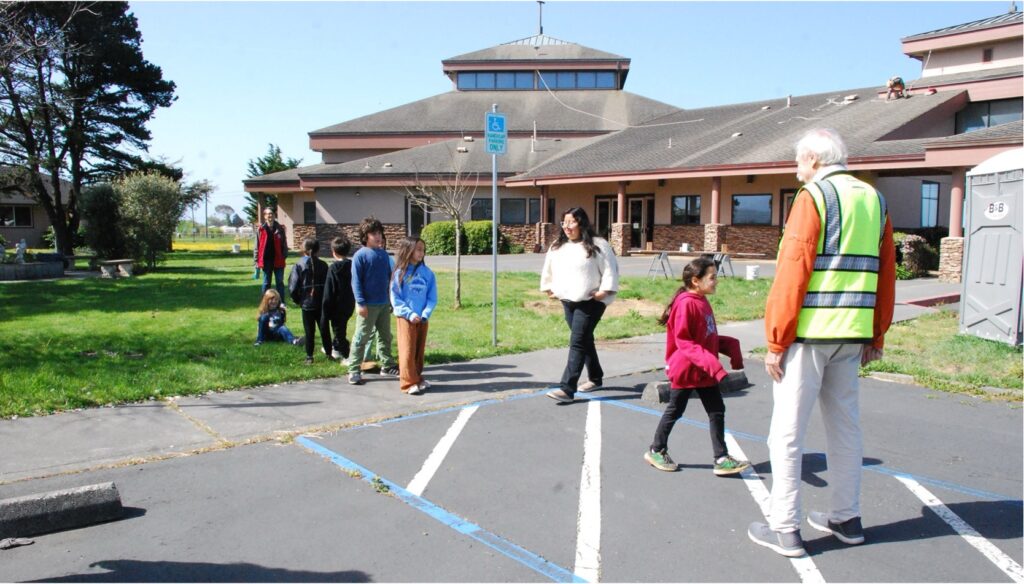
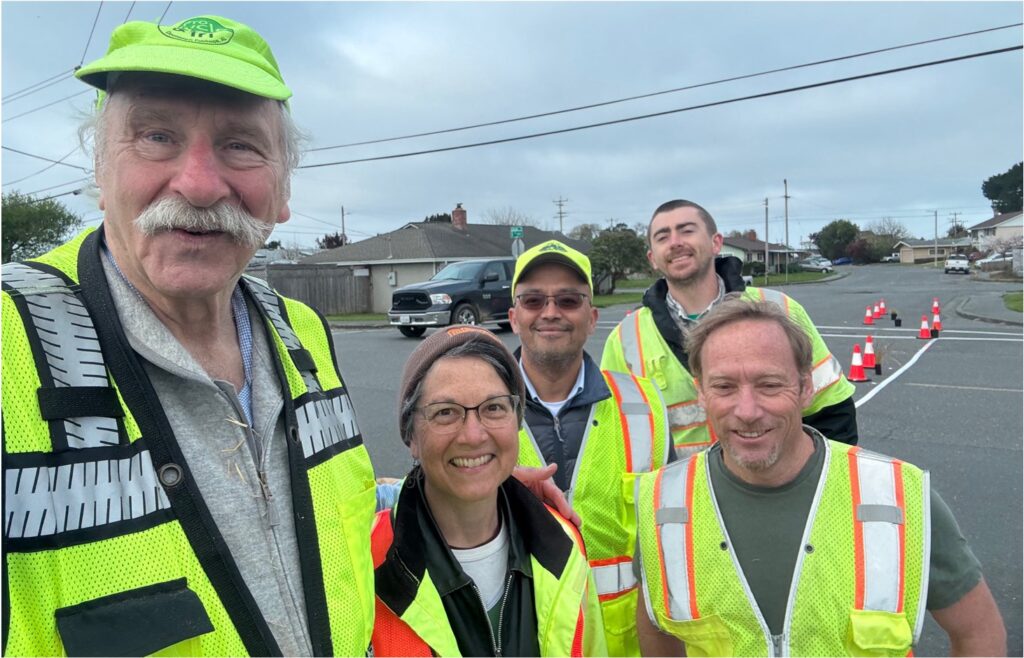
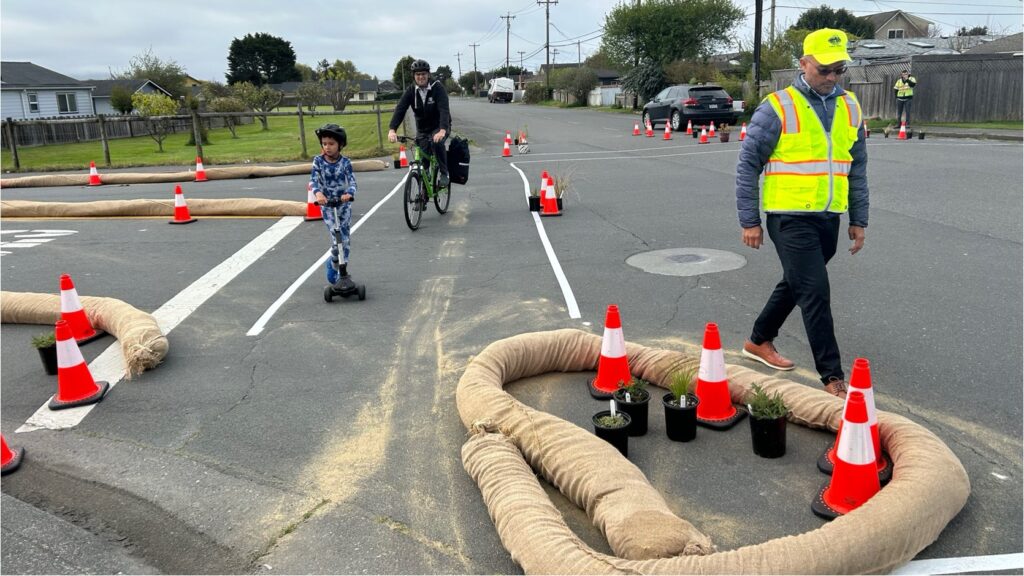
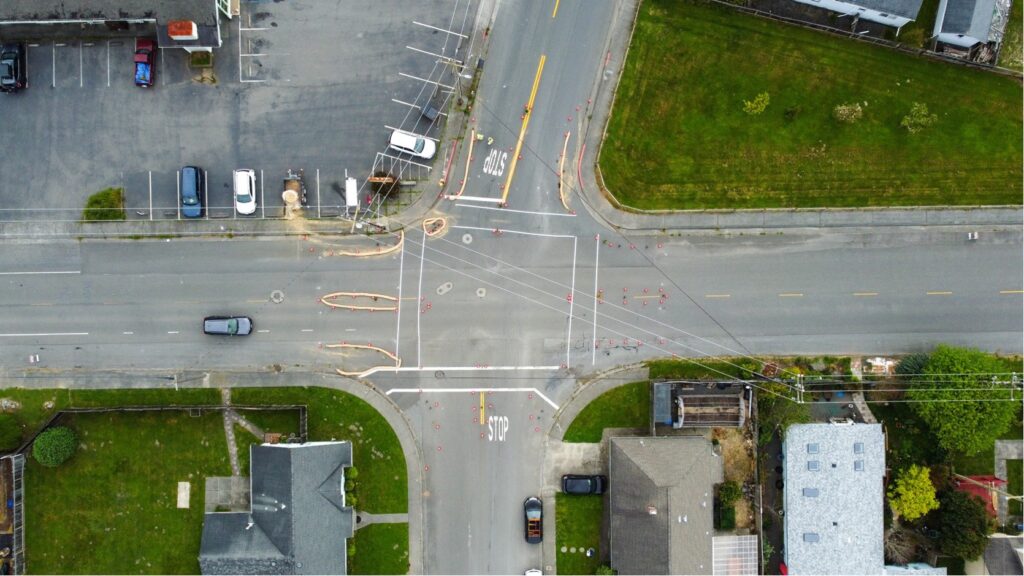
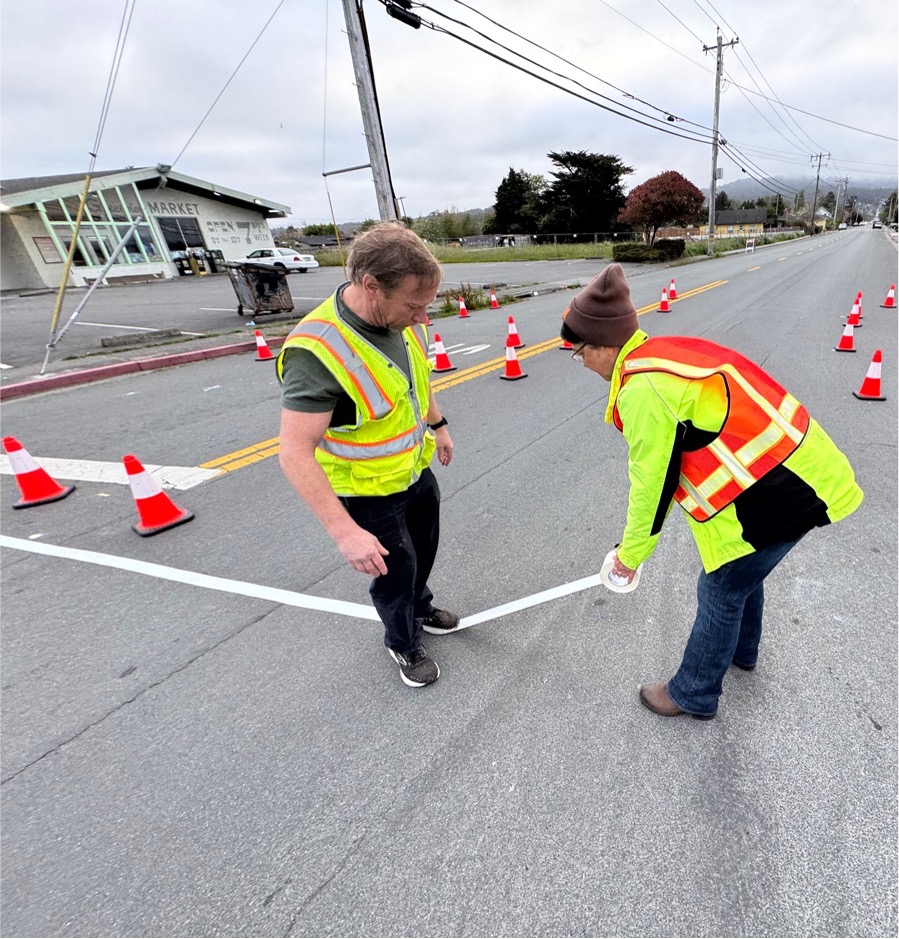
Registration is Open for the 2025 CCEC Forum
We hope you will join us July 9-10, 2025 in San Jose, CA for the 16th Annual California Climate & Energy Forum!
This forum—organized by CivicWell through the California Climate and Energy Collaborative—brings together hundreds of local government staff, elected officials, and climate practitioners to learn from each other and advance equitable climate change and energy practices.
